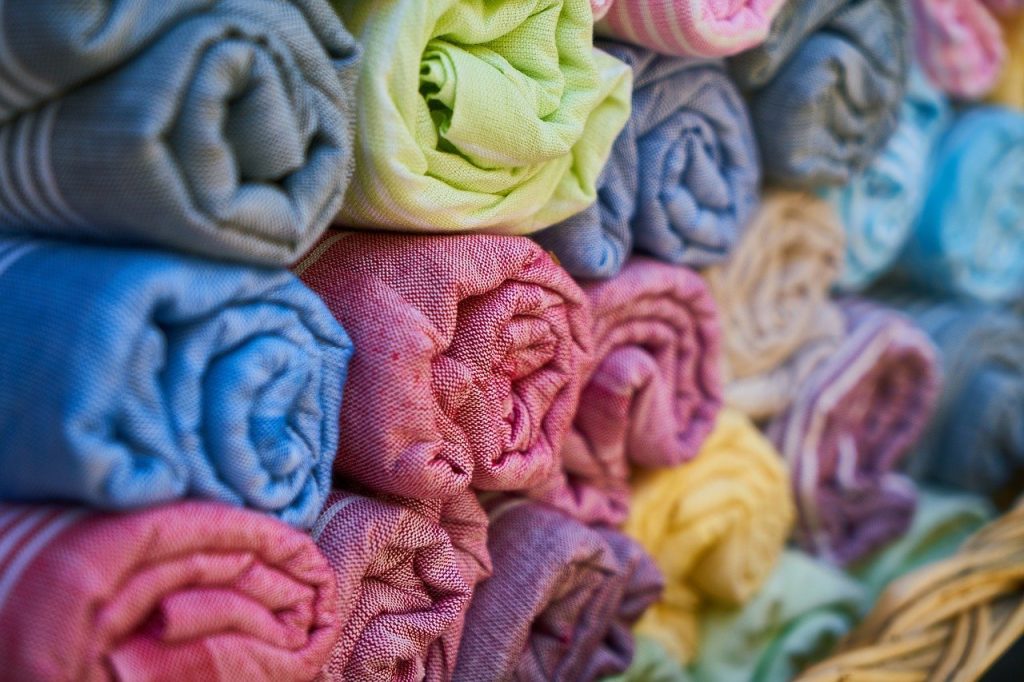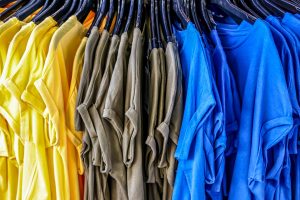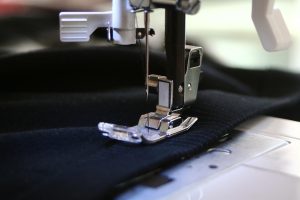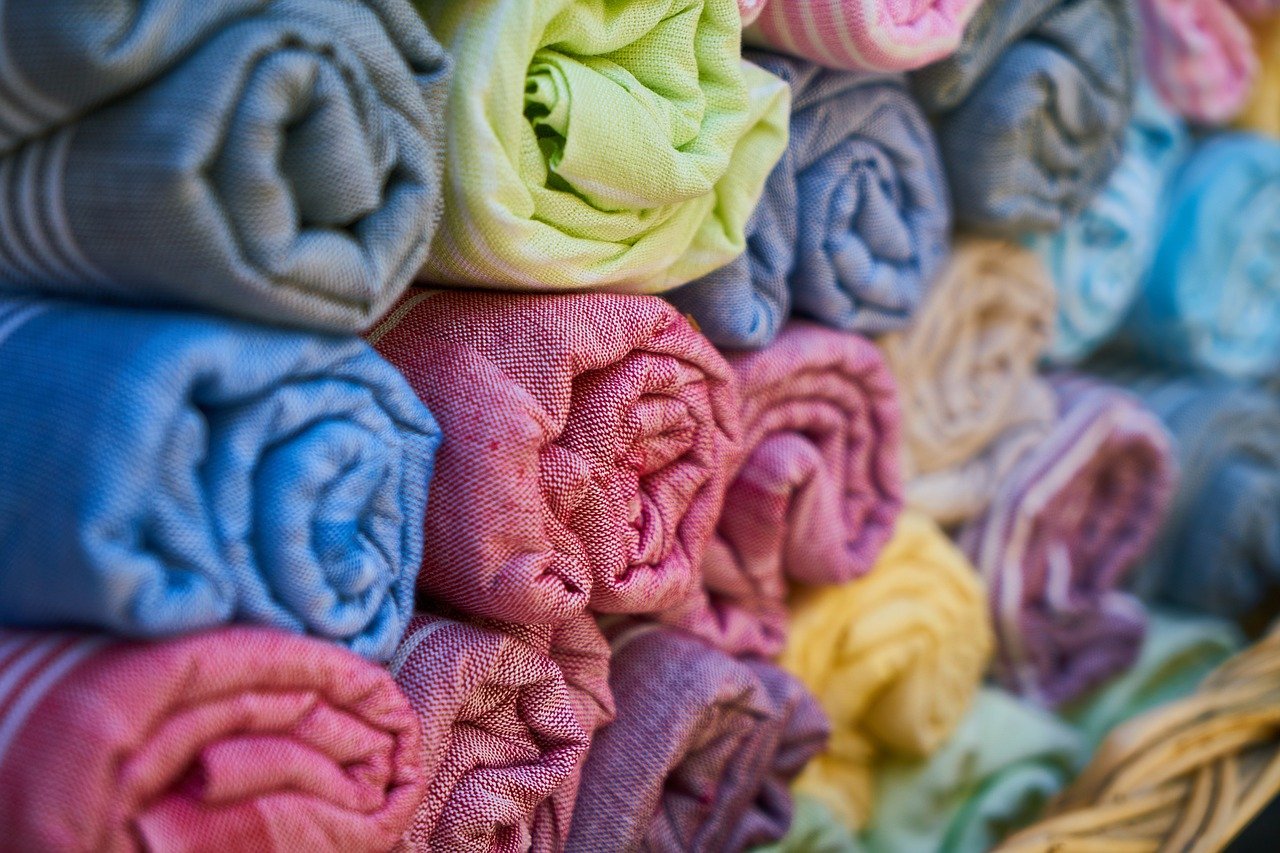CustomBaba started as a t shirt manufacturer, with time manufacturing all items in Knitting. This post would discuss all about t shirt manufacturing. As one of the top quality t shirt manufacturer in the country, we manufacture t shirts for companies like Monte Carlo, Myntra etc. Our client list includes some of the biggest names in the industry.
We will discuss many topics to make this post the best and the biggest post on t shirt manufacturing on the web.
Some of the earliest t shirts were made during the world war 2 period by the allied forces to support their troops in comfortable clothing. These were mostly made of cotton and added great comfort to the clothing of soldiers.
This was especially seen in places like North Africa, which had very high temperatures.
Now, we would discuss things like Fabrics from which T shirts are made.
1) Machines used in manufacturing.
2) Colours used in dyeing of the fabric for T shirts.
3) Threads used in stitching.
4) Quality parameters.
A T shirt manufacturer can use various fabrics as below.
- Cotton Polyester
- Poly cotton mix
- Viscose
- Cotton Lycra
- Polyester Lycra
- Viscose Lycra
There can be others too, but the above would constitute a dominant majority of fabrics used by a t shirt manufacturer.
As a T shirt manufacturer, we manufacture T shirts in all these fabrics.
1) 100% Cotton T shirts.

100% cotton is the standard for all big and established brands. This fabric is soft and comfortable for the user and the quality is now established with the users as well. 100% cotton has become a selling points for brands, although some fabric mixes like 95% cotton and 5% polyester have better strength and increase longevity of the t shirts. But, due to consumer demand and trust, most brands still want their t shirt manufacturer to provide them with 100% cotton t shirts only.
2. 100% Polyester T shirts.
100% Polyester T shirts have different properties than the cotton ones. Polyester fabric is cheaper than cotton and thus the end product does is not as costly as cotton. Polyester fabric cannot be used for comfortable wear in hot and humid conditions where cotton is the norm. It also does not have properties to absorb sweat. Though modern fabrics made of polyester for sportswear are made of different knitting that instead of absorbing the sweat removes the sweat from the body itself.
3) Poly cotton mix fabric.

As you saw above both cotton and polyester have different properties. Thus this third fabric has been constituted to integrate the properties of both cotton and polyester. The fabric is much stronger than regular cotton due to polyester and cotton provides the cool temperature to body. Mostly a percentage used is 60:40 for 60 percent cotton and 40 percent polyester. As a t shirt manufacturer, we manufacture garments for some of the top fashion brands and this fabric is the most used fabric of all. One reason being that the strength of the garment increases and it is cheaper for the consumer to buy. Using good dyeing techniques, Polyester cotton t shirts are as soft as cotton and much more durable.
4) Viscose.
Viscose is a plant based fabric made of cellulose. It is shiny, thus used mainly in women apparel. It is quite light weight and suitable for warmer temperatures. It loses strength when wet. Viscose has many cotton like properties as both are plant based. Softer, lighter and shinier than any other fabrics, this fabric took women apparel by storm.
5) Cotton Lycra.
Cotton lycra fabric is used when more stretchability is required in the fabric. This fabric is used when clothing is made for yoga-wear and sportswear. Cotton lycra is the default fabric used in leggings as they require the fabric to have more stretchability. Cotton lycra is also used in many brands that are targeting the niche of people who love to skate, run or play sports. It has now also started appearing in women fashion for tops and dresses.
6) Polyester Lycra.
Polyester Lycra is used in premium sportswear. All premium brands like Nike, Adidas etc make their t shirts using this fabric only. They are very good for body hugging sports designs.
7) Viscose Lycra.
Viscose Lycra is again used where stretchability and glossier, shinier finish is expected from the fabric. Though not a staple of any category, it is used in women dresses that hug the skin.
We use the following machines as a T shirt manufacturer.
T shirt manufacturer: Machines used.
- Overlock machine :
An overlock machine is used to attach two fabric pieces together like the front and back of a t shirt. It is also used to attach the sides of the t shirt/garment. It provides seam stitch to the garment and some machines have additional cutters that cut the extra fabric that is left when the two panels are joined. The additional cutter provides an aesthetical appeal to the garment and helps in better aesthetic appeal of the product. We use the best Juki Overlock machines that are an international standard in Overlock machines. As a t shirt manufacturer, we make sure to adhere to best quality practices in machinery and use machines without oil heads that leave no room for oil to leave stain on the garment.
2. Cover-stitch machine:
Cover stitch machine is used by a t shirt manufacturer for the hemming process of the sleeves and bottoms of T-shirts. This is the final stage by a t shirt manufacturer before it goes for thread cutting and ironing of the garments. A coverstitch machine essentially does cover stitching and is an essential machine in any plant that manufactures garments of any type. Here too, we use JUKI cover stitch machines without oil heads that allow us to make stainless garments.
A stitching machine is used to put single needle stitching in the garments.
For example if you notice any collared t shirt and notice the t shirt placket, it is made by a single thread stitching machine as above. This is the most basic type of machine available and is very similar to the stitching machines found at many homes.
3. Button Hole Machine.
A button hole machine is one of the most advanced part of every t shirt manufacturer’s factory.
A button hole machine is used to make holes in the placket of polo t shirts.
Confused what that is?
A placket is the neck area of the polo t shirt that contains buttons and openings to “close” the buttons.
Modern t shirt manufacturers like us use automatic button hole machines that attach the button automatically on the t shirt. Even the opening can be placed on the machine and after setting the width and length of the opening, we can start making the button gaps.
T Shirt manufacturing process
: There are many steps in the t shirt manufacturing process followed by a t shirt manufacturer. We will be starting from scratch. Why? Because it is important for us to understand the inherent details of this industry before stepping in it. The steps are
01) Ginning.
Ginning is a process that removes the seeds and other plant material from the raw cotton that is procured from the plant. When a cotton ball is plucked, it contains significant seeds and other plant material that needs to be removed to make fine cotton textile. This is done using high scale mechanical machines today, although it started as a hand machine like most of its contemporaries during the industrial revolution. Ginning ensures that our fabric is clean of dirt and has no specks and twigs of the cotton plant.
02) Spinning.
Spinning is a process where after ginning the cotton, we take the cotton and convert it into cotton thread. Improvements of spinning technology marked one of the starts of the industrial revolutions. Using “Ring Spinning”, the most common used method, thread is manufactured to be “knitted” into cloth. The process is mainly mechanical completing the stage for final fabric making.
03) Knitting.
Now, our final fabric is taking shape through which we would make t shirts. Using “Knitting machines” we knit the cotton thread to make fabrics. Different knitting machines manufacture different types of knits. This is a a place where we can mix different yarns like cotton, lycra, polyester and create combination of fabrics like polyester cotton, cotton lycra etc. We can also decide the width of the fabric / GSM of the fabric. The fabric constructed here is un-dyed and you would see the fabric to be slightly yellowish giving you the “raw” look.
04) Dyeing.
Dyeing means colouring the fabric. Earlier natural dyes were used to colour the fabric. Then artificial dyes became the norm in the industry as they did not lose colors in washing and also gave better brightness to the fabrics. Today all t shirts fabric is dyed artificially. During this process, we can add certain chemicals that can increase softness, durability and other features as requested by the customers. The dyeing is done using Pantone colors so that there is common understanding between the customer and the t shirt company on the shade of the colour.
05) Pattern Making.
After fabric is processed, a pattern is made for cutting the t shirts.
A good t shirt manufacturer will ensure to have an experienced pattern master, who would make the pattern as per requirement of the customer. This will be accomplished after getting the exact size specifications from the customer for their requirement.
Once the same is done, sheets of cardboard are used to draw the pattern on the same and those are then cut.
The pattern is put on the stack of fabric and marked for cutting.
A different pattern needs to be made for every size.
06) Cutting.
After pattern making is done, using cutting machines, the fabric is cut in layers.
Slight mistakes in cutting can make the t shirt shape incorrect. So we need to ensure that the cutting is perfect for perfect sizing to the customer.
After the fabric is cut, it needs to be stacked sizewise to issue the same to the stitching department.
This includes all the accessories like zips, collars, labels, washcares etc.
07) Stitching.

Once cutting is done, stitching begins.
Stitching should use a good number in SPI
Stitching should be clean and oil free.
This can be achieved by using oil-less machines.
Good stitching thread, lighting and worker skill is also required.
It should be ensured that every single piece that is made is checked while stitching with a different checker.
A checker is a person who checks the stitching in line.
08) Thread cutting.
Once a piece is stitched, it has many threads on it.
These threads need to be removed carefully, manually using “thread cutters”.
A thread cutter is an exclusive accessory of the garment industry.
Care needs to be taken that a thread cutter while doing its job does not cut the garment, otherwise the t shirt becomes “dead”.
What is that?
It basically means that we cannot send that piece to you as the same is beyond repair.
09) Ironing.
Specific care needs to be given while ironing:
The ironing should ensure perfect shape of the garment, especially the neck.
The press can also make our t shirt increase the length by 1/2 inch.
Ironing the t shirt properly makes the t shirt look good and is an important part in finishing of the garment.
10) Checking.
Once the t shirts are ironed, they are sent to checking.
Here is where experts sit, who check each and every piece of the garment, to see if there is a flaw in them.
Once the flaw is found, it is either corrected or it is abandoned and not sent to the customer.
Depending on the brand, the checking team has instructions that need to be followed.
This can include:
Checking if the Wash-care has a button stitched on it, so if a customer loses the button, it can be replaced.
Manually checking the dimensions of every piece.
Removing stitching flaws like broken stitch and uneven stitching.
T Shirt Accessories:
1) Wash-care
A wash care is a must protocol in a t shirt.
A wash-care format is generally shared by the customer (in case it is a corporate) or a default one is used by the t shirt manufacturer.
A wash-care, as the name sounds is a label that tells the customer how the t shirt should be washed.
They also have information like :
The brand name.
- Date of manufacture.
- Manufacturer details.
- Fabric composition.
- Country of manufacture.
2) Buttons
:Which buttons will go with which t shirt is a very important decision and is not to be taken lightly. Mostly brands go for bulk white buttons and they are later dyed as per colour of the t shirt.
This may be in contrast or matching depending on the requirement.
3) Patches
:A patch or a PU Label go a long way in a T Shirt for a brand to advertise its name.
Thus bulk Labels are ordered and attached in single t shirts so brand recall increases.


I am looking for 100-200 Quantity of tshirt (solids) pls share the quotation
Hi sir,
Round neck or polo?
sonam
62806-21946
Want t-shirts around 500-1000 with our co logo and colour .
Also would like to know on hoodies .
Delivery at Bangalore and mumbai initially,then only at Delhi as extra .
Hi Sir,
Please drop msg on my number.
Sonam
62806-21946
my own requirements 50 T shirts ..white > 10pic,,black, >10, navy Blue>10 , Gray >10 off white >10.
Best Quality..2XL
Hi Sachin,
Send me your number.
How to contact
62806-21946